




- BRNN
- BRI News
- BRNN News
- Database
Official Documents Polices and Regulations
Inter-government Documents International Cooperation BRI Countries
Business Guide Economic Data BRI Data
Trade
Investment Projects Latest projects
Cases - Content Pool
“The bell chimes, calling the son to come home,
like a whisper of sigh in his life.
What his dark skin brings him
is a life-long struggle for people of all colors.”
Thirty-one years ago, touched by the story of Nelson Mandela, Wong Ka Kui, the lead singer of BEYOND, a rock band from Hong Kong, wrote the song, “Glorious Years,” as a tribute to the South African black leader.
Nelson Mandela, who spearheaded the anti-apartheid struggle and founded the new South Africa, is revered as “father of the nation” by the South African people. He is also a world-renowned statesman and the 1993 Nobel Peace Prize laureate. Today, the way with which he approached racial conflicts is still being followed in many countries and regions. Over the many years of his quest, struggle and presidency, a special bond was formed between the South African leader and China.
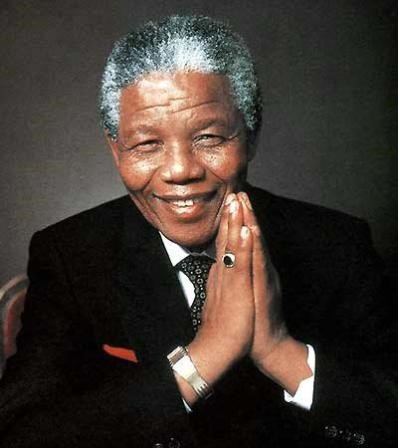
Sun Tzu’s Art of War: where it all started
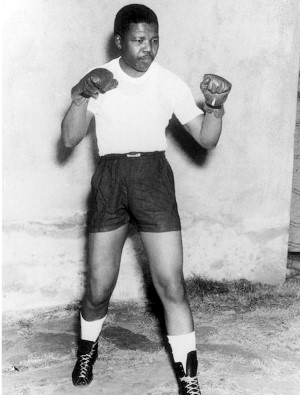
The story between Mandela and China started during his early years in Cape Town, where he practiced law by day and played amateur boxing at night. He loved reading, especially books about strategy and tactics such as Sun Tzu’s Art of War. The traits of a good commander as described by Sun Tzu, “the virtues of wisdom, sincerity, benevolence, courage and strictness,” can all be found in Mandela.
The Start of His Political Career: getting to know Red China
In 1944, Mandela joined the African National Congress (ANC) and started the fight against apartheid. As recounted in his autobiography Long Walk to Freedom, it was during these years that he read Edgar Snow’s Red Star Over China, as recommended by Moses Kotane, the then General Secretary of the South African Communist Party, and “saw that it was Mao’s determination and non-traditional thinking that led him to victory.” In a conversation with his long-time friend Richard Stengel, Mandela said: “The revolution in China was a masterpiece, a real masterpiece. If you read how they fought that revolution, you believe in the impossible. It’s just miraculous.”
On Robben Island: the Selected Works of Mao Zedongwas spiritual pillar
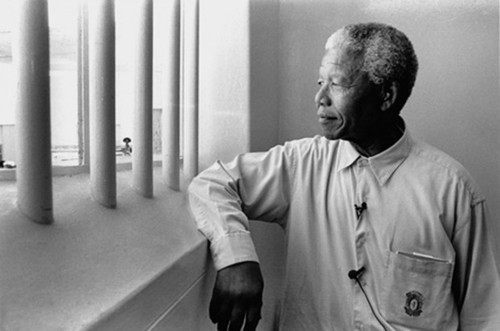
In 1962, Mandela was arrested for leading the anti-apartheid movement under the charges of “incitement and leaving South Africa illegally,” and was sentenced to life imprisonment two years later for conspiring to overthrow the state by violent means. He spent 27 years in prison before he was released in 1990. According to Mandela, China is the spiritual pillar which helped him survive the days in Robben Island prison. He read with great interest the Selected Works of Mao Zedongsent by his wife Winnie, and spoke highly of Liu Shaoqi’s How to be a Good Communist. He once said what was written in the books is truly inspirational and he was greatly encouraged. He learned that a true revolutionary, once had his goal set, must work tirelessly for that goal, be prepared for adversity and setbacks and be able to survive and grow in even the most difficult situation; and this had become a source of strength that boosted his confidence and morale. The Red Army’s Long March and the Chinese people’s heroic struggle for national liberation have greatly inspired South Africans in their fight against apartheid.
The Long-awaited encounters
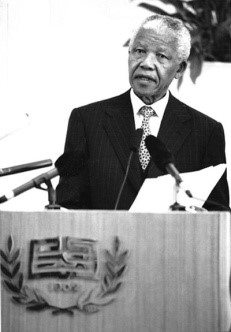
The People’s Republic of China has all along supported the anti-apartheid struggle in South Africa. When the 71-year-old Mandela walked out of prison victoriously in February 1990, China extended congratulations through various channels. After his release, Mandela kept his interest in China. In his book Ten Episodes in China’s Diplomacy, then Chinese Foreign Minister Qian Qichen recalled Mandela saying how he had admired China and wanted to visit this great land and its great people. In October 1992, Mandela paid his first visit to China as the ANC President, and was accorded the same high-level reception as head of state. The Chinese government donated $10 million in cash and goods to South Africa, and Peking University awarded him an honorary doctorate. Later at a press conference, Mandela said he was deeply touched by the sincere welcome and high-level reception. It was also during this visit that the 74-year-old made the iconic trip to the Great Wall, a symbol of the Chinese nation.
After Mandela took office as the President of South Africa, China and South Africa worked together and established diplomatic relations on January 1, 1998. In May 1999, just before the end of his presidency, Mandela paid a second visit to China, this time as the head of state. When meeting with Chinese leaders, Mandela said that he was delighted to conclude his political career with a visit to China, and expressed sincere gratitude for the Chinese government and people, as China had offered great support to the South Africans’ struggle for liberation.
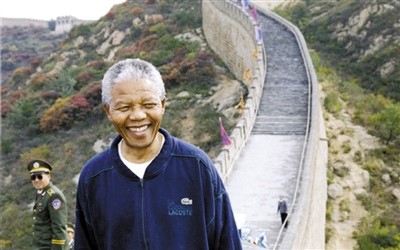
On December 5, 2013, Nelson Mandela passed away in his home in Johannesburg at the age of 95, and leaders of over 70 countries and international organizations attended his memorial events held in South Africa.
In his letter of condolence, President Xi Jinping said that Mr. Mandela is a world-renowned statesman. He has led the South African people, through years of arduous and extraordinary efforts, to win the struggle against apartheid and has made historic contributions to the birth and development of a new South Africa. Mr. Mandela is one of the founders of China-South Africa relations. He visited China twice and was committed to advancing China-South Africa friendly cooperation in different areas. The Chinese people will always remember his exceptional contributions to the development of China-South Africa relations and the progress of mankind.
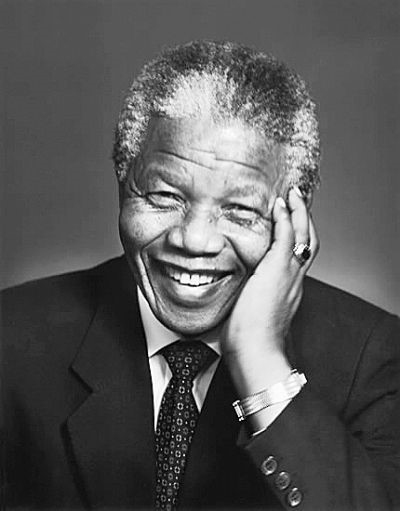

Tel:86-10-65368972, 86-10-65369967